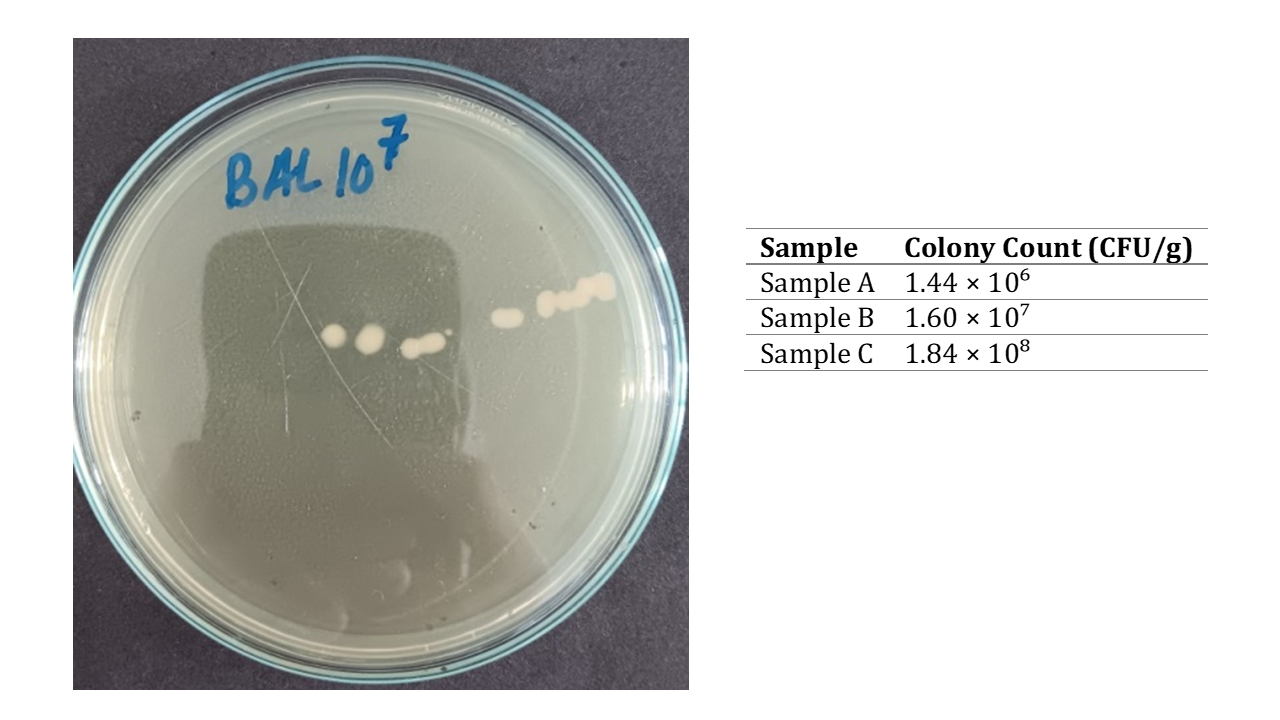Microbial Profiling and Probiotic Potential of Dadioh: Insights into Traditional Fermented Buffalo Milk
Keywords:
dadioh, dadiah, lactid acid bacteria, probiotic, fermented milkAbstract
Dadioh, a traditional fermented buffalo milk product from Limau Manis Village, holds significant cultural and nutritional value. This study aimed to identify lactic acid bacteria (LAB) in dadioh and quantify their colony counts to evaluate its probiotic potential and compliance with Indonesian National Standards (SNI). Employing both macroscopic and microscopic methods, LAB were identified based on their morphological and biochemical characteristics, including Gram staining and catalase tests. Bacterial colony counts were determined using the total plate count method. The results revealed LAB counts ranging from 1.44 × 10⁶ to 1.84 × 10⁸ CFU/gram, satisfying the SNI standard for fermented milk products. LAB colonies exhibited distinct characteristics, including white, smooth, and glossy appearances, and were confirmed as Gram-positive. The absence of catalase activity reinforced the identification of LAB species, such as Lactobacillus plantarum and Streptococcus thermophilus. These findings underscore dadioh’s probiotic potential, comparable to commercial fermented products like yogurt and kefir. This study highlights dadioh’s dual significance as a culturally valuable and health-promoting functional food. By bridging traditional knowledge and modern scientific methods, it provides a foundation for further research and potential commercialization while preserving its authenticity. Future studies should explore molecular techniques and clinical validations to enhance understanding of dadioh’s probiotic benefits.








